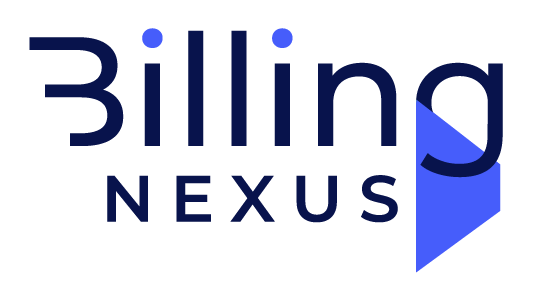Medical Coding for Beginners: Tips for New Professionals
Medical coding is an essential aspect of healthcare, translating complex medical information into standardized codes for billing, insurance claims, and patient records. For beginners stepping into this field, the learning curve may seem steep due to the intricacies of coding systems like ICD-10, CPT, and HCPCS. However, with the right approach and tools, anyone can become proficient in medical coding.
This guide is designed to provide practical tips for new professionals entering the world of medical coding.
1. Understand the Basics of Medical Coding
Before diving into coding manuals, it’s essential to grasp the fundamental purpose and structure of medical coding systems. Here’s a quick breakdown:
- ICD-10 (International Classification of Diseases, 10th Revision): Used for diagnoses.
- CPT (Current Procedural Terminology): Describes medical, surgical, and diagnostic procedures.
- HCPCS (Healthcare Common Procedure Coding System): Supplements CPT with codes for products, supplies, and services not included in CPT.
Familiarize yourself with these coding systems and understand their role in the revenue cycle.
2. Invest in Proper Training
Enrolling in a comprehensive medical coding course is a crucial first step. Accredited programs, like those offered by the American Academy of Professional Coders (AAPC) or the American Health Information Management Association (AHIMA), provide foundational knowledge and certification opportunities.
Certifications for Beginners:
- Certified Professional Coder (CPC): A great starting point for outpatient coding.
- Certified Coding Specialist (CCS): Focuses on inpatient hospital coding.
- Certified Coding Associate (CCA): A general certification for entry-level coders.
3. Master Medical Terminology and Anatomy
Medical coding relies heavily on understanding medical terms and anatomical concepts. A strong grasp of these areas ensures accurate interpretation of physician documentation and correct code selection.
How to Learn:
- Take online courses in medical terminology and anatomy.
- Use flashcards or apps to reinforce learning.
- Practice by decoding real-world medical scenarios.
4. Get Familiar with Coding Manuals and Tools
Coding manuals are indispensable resources for medical coders. Learn how to navigate them effectively:
- ICD-10-CM Manual: For diagnosis coding.
- CPT Manual: For procedural coding.
- HCPCS Manual: For supplementary codes.
Pro Tip: Invest in the latest editions of these manuals to stay updated with coding changes. Additionally, familiarize yourself with coding software, which automates some of the manual work and ensures compliance.
5. Practice with Real Scenarios
Practical experience is the best way to learn medical coding. Practice coding real-world cases to understand how codes apply to various scenarios.
Resources for Practice:
- Case studies in coding textbooks.
- Online coding simulators.
- Internship opportunities in healthcare settings.
6. Stay Updated with Industry Changes
Medical coding guidelines and regulations evolve regularly. As a new professional, staying informed is crucial to ensure compliance and accuracy.
Ways to Stay Updated:
- Subscribe to industry newsletters and journals.
- Attend webinars and workshops.
- Join professional organizations like AAPC or AHIMA.
7. Build Accuracy and Attention to Detail
Inaccurate coding can lead to claim denials, delayed reimbursements, or legal issues. Developing a habit of double-checking codes and documentation is essential.
Tips for Accuracy:
- Cross-reference codes with documentation.
- Use coding audits to identify and correct mistakes.
- Stay organized with clear notes and records.
8. Leverage Technology
Modern coding software and tools can streamline your workflow and minimize errors. Beginners should familiarize themselves with electronic health record (EHR) systems and coding platforms.
Popular Tools:
- EncoderPro
- 3M Encoder
- TruCode Encoder
These tools offer code lookup features, compliance checks, and updates on coding regulations.
9. Seek Mentorship and Networking Opportunities
Working with experienced coders can accelerate your learning process. Mentors can provide guidance, share practical tips, and help troubleshoot challenges.
Networking Tips:
- Join local coding chapters or online forums.
- Attend coding conferences to meet industry professionals.
- Engage with peers on platforms like LinkedIn.
10. Prepare for Certification Exams
Certification exams are a gateway to better job opportunities and higher pay. Preparation involves a combination of theoretical knowledge and practical experience.
Study Tips:
- Create a study schedule and stick to it.
- Use official practice exams and study guides.
- Join study groups or online forums for additional support.
11. Understand Compliance and Ethics
Medical coders must adhere to strict ethical standards. Upcoding, undercoding, or falsifying documentation can have severe consequences.
Key Compliance Tips:
- Always use codes supported by physician documentation.
- Follow payer-specific rules and regulations.
- Stay informed about healthcare laws like HIPAA and the False Claims Act.
12. Be Patient and Persistent
Mastering medical coding takes time and practice. Mistakes are a part of the learning process, so don’t get discouraged.
Encouragement for Beginners:
- Celebrate small wins, like correctly coding a challenging case.
- Seek feedback from peers or supervisors to improve.
Conclusion
Medical coding is a rewarding career that offers stability and growth opportunities. By mastering the basics, staying updated, and continuously practicing, new professionals can build a strong foundation in this field. With dedication and the right resources, you can overcome challenges and excel as a medical coder.

